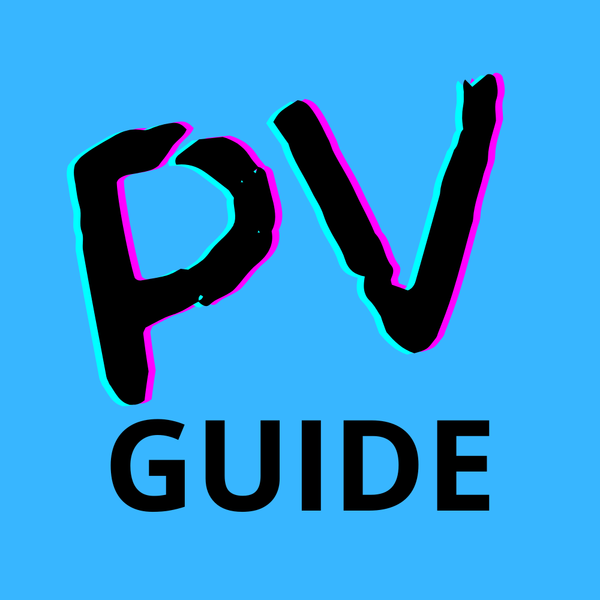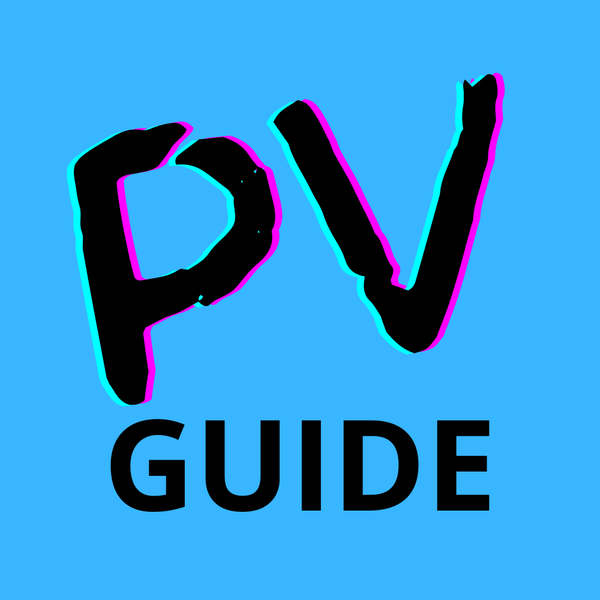Izzy Roland on her new movie D(e)ad: 'It felt like we had been working on this family project for my whole life'
Talking with Izzy Roland, her real mom, and her fake dad about their new movie D(e)ad
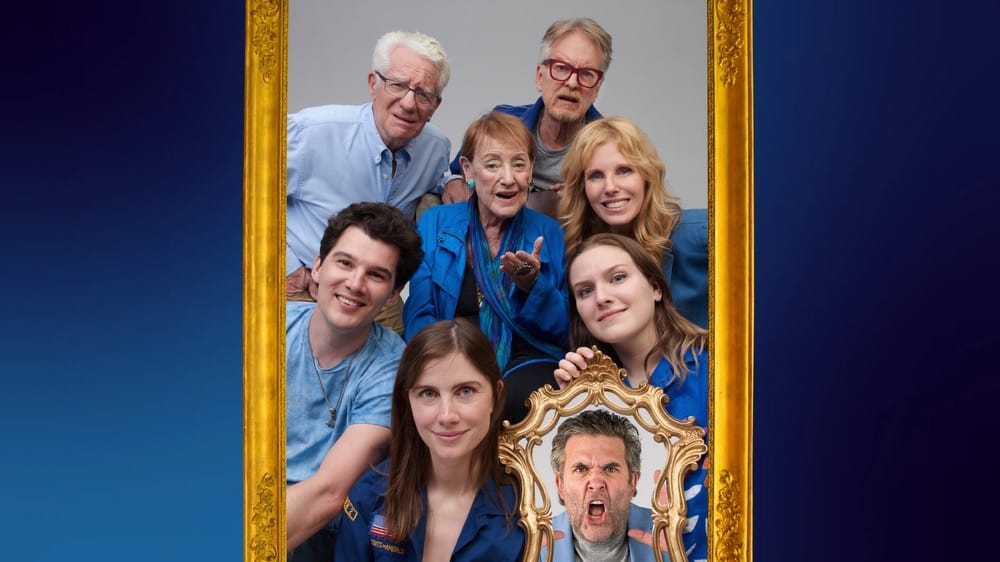
Comedian, screenwriter, and Dropout star Izzy Roland’s new movie D(e)ad is a true family affair. Roland wrote the script, produced the movie, and stars as lead Tillie, Roland’s mom Claudia Lonow directed and stars as Tillie’s mother, and Roland’s step-father, grandparents, and husband Brennan Lee Mulligan all play roles in the movie. There are other familiar faces for Dropout fans, too, including Vic Michaelis as Tillie’s sister, and Zac Oyama as a particularly eager doctor. The movie plays in limited theaters this week after a long journey that included a funding campaign on Kickstarter.
D(e)ad follows Tillie, a young woman with a strained relationship with her deadbeat father (Craig Bierko). When her father dies, his ghost starts showing up in mirrors, haunting everyone in the family except for Tillie, who isn’t quite sure how to feel about the situation. Inspired by Roland’s own relationship with her father and his passing, D(e)ad is a story about grief, familial anxiety, and the feeling of being left out emotionally, all packed in a comedic container with some of the funniest people in the business.
I spoke with Roland, Lonow, and Craig Bierko about the movie and the unique environment it was filmed in. A note: these were two, separate interviews (one with Roland, one with Lonow and Bierko) that I have stitched together for ease of reading.
These interviews have been lightly edited for length and clarity.

This project involves a lot of people – friends, family members – who have previously worked together in different settings. What was different about collaborating with these people in this new context? Did it feel different from other sets you’ve worked on?
Izzy Roland: Honestly, it didn’t feel like too new of a context. It was obviously unique and extraordinary, but I have a lot of experience working with my family and friends. It felt pretty natural. It was difficult, but I think any work scenario is difficult and has its moments that are tough to get through, but I think it went pretty smoothly for what it was.
A lot of what I’ve done public-facing with Dropout has been improv, but I’ve been writing for 10+ years. I wrote my first feature when I was in college, about my college improv group, and writing screenplays is something that I’ve loved. I’ve written a bunch of pilots and stuff like that, but specifically screenplays have been something I am naturally drawn to do. I’ve written a bunch of features before, but never had something of mine shot and made. So that was pretty magical.
I lived with my mom and my grandparents in the same house my entire adolescence until I moved to college. They’re all in comedy and in show business, so it felt like we had been working on this family project for my whole life. But even into my 20s I worked with my mom in a lot of different scenarios. I’m a pretty cut-and-dry nepo baby, taking up the family business. I’ve developed shows with her. I was her assistant for a while, which was a bad, bad experience for both of us. We were both really bad at that. So that was short-lived, but this felt like a culmination of 30 years. [Laughs]
There definitely was a transition, and a lot of the “student becomes the master.” It was sort of like Trust me, I got it, and she was able to see that I do got it. And vice versa, of her being like I know what I’m doing. We both made mistakes, but we were kind to each other throughout all that. My stepdad is also a director. He more or less co-directed, because there were a lot of scenes my mom had to be in. They work very closely and very well together, so it was like a surplus of good ideas.
Claudia Lonow: I loved it. I grew up in a show business family, so I was used to getting notes from my parents, which I did not love, but I was used to that vibe with them. And with my partner, Jonathan Schmock, we’ve collaborated a lot. But I had never done it with Izzy in this way. It was sort of revelatory in that I was enjoying respecting her as an artist and as a grown-up, as opposed to my daughter who’s in a school play, or helping her with an audition for college. This was like, Wow. She’s an accomplished performer, an accomplished writer, an accomplished producer in her own right, and I get to work with her. That was pretty much how I felt. And with my parents, it’s a dream, because in my mind it was like the world is going to see you the way I want them to see you. Having written them as characters in my last show, now I’m getting the real shit. Now this is the uncut coke of my parents.
Craig Bierko: Out of everybody, I knew Claudia the most. She’s one of the funniest people I know, and she’s a terrific writer and is always open to ideas. That’s a great feeling, that you don’t have to feel like you have to carefully approach a person with an idea.
I was going to get to know everybody. I thought, Well, I’d love to get there a couple of days early. Maybe we could go out to dinner and I get to know the family. And then I thought no, sometimes doing nothing is the best. [Bierko’s character Daniel] is a guy who spends his entire time on screen failing to make a connection with all of these people. The only person I was truly familiar with was the person in the story I would have been truly familiar with, which was Claudia. So it was actually perfect. I didn’t want to be standoffish, but I felt that the lack of intimacy with everybody else would probably work for me. I’m the new guy, and if I can maintain that soft distance a little bit, it can only help.
Izzy did such beautiful work. I knew that this was the culmination of some very hard work. I did not take it lightly that I was the person who was representing someone in her life that was so significant. We're following Izzy through this experience of connecting and reconnecting and deconnecting from her father. But what always touches me is the people, the characters who surround that person, and how, despite their differences, everyone seems to come together as a unit to support that person's fulfillment. And that's another magical quality in this film that I think is really beautiful. The fact that it's a real family doing it, I think, adds to it tonally in ways that would be impossible otherwise.
Izzy, your sister is played by Vic Michaelis, and the two of you have such a wonderful way of sibling bickering in the movie. Did that come naturally?
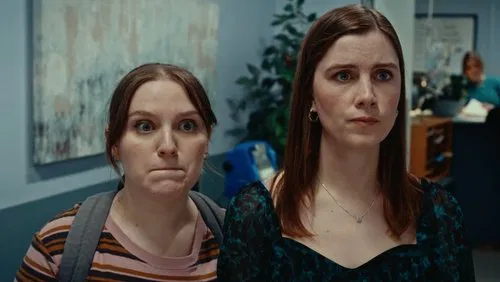
Roland: It really did. I love them very, very much, and this experience really only brought us closer. But they understood what I was trying to get across as soon as they read the script. I was really, really influenced by Fleabag and the sister relationship in that. As soon as they read it, they were like This feels like Fleabag. I was like, Oh my god, it’s not even my birthday. This is the best thing you could have possibly said.
Having improvised together a lot, we’re able to set the tone pretty easily. They’re just amazing. I was filled with regret casting them because they were so good, and I was like Oh, they’re doing a much better performance than I am.
This is a story about grief told with lots of humor. How did you approach balancing those tones?
Roland: I think, learning from my mom, film school, and my family’s sense of humor, we were able to gauge what the natural humor of a situation is. I just used what was real about the moments when they happened. Obviously, a lot of the story is fictional, but the emotional moments were very much something I experienced, being in a hospital while someone you love is dying. It was me and my sister, my mom and our partners, when it happened in real life. We kept saying it was 70% hysterical laughter and 30% hysterical crying. When you come from a funny family that is drawn to find those moments, you see a lot of really awkward moments when you’re with someone who's dying and have to continue to have human interactions with people. It’s just weird.
Lonow: I love comedy that comes out of real characters and real emotion. I really love that. I knew everybody who was working on the project had great comedic chops, so I didn’t have to really worry about that at all. It was just keeping it real and letting the emotions come up naturally.
I also love to be surprised by feeling emotional. I was hoping to get that in the movie, that people are having a real human experience, and when their emotions come up, they weren’t expecting to feel that way.
As far as the comedy, I mean, look, this is based on my real ex-husband dying. I was coming up with ideas for comedic things that were happening while it was happening, because that’s just how I deal with things. I don’t know if that’s good or bad, but it’s how I built my career. Literally, Isabella said You have to stop. And I kept saying Is this bad? There were a lot of funny things happening, and then it was like How do you deal with these real human emotions?
I think in my work, oddly, the more personal it’s been, the more people have felt like they identify with it, as opposed to me trying to make sure everybody’s covered. The more specific I’ve been about the real foibles of real people, even though I go Who’s going to identify with it?, it comes through in the emotions.
Bierko: There was an awful lot I chose not to think about, which is half laziness and half whatever I say which convinces you it wasn’t all laziness. [Laughs] No, I really do think that when a script resonates with you, it resonates with you. And it's interesting to kind of pull it apart and go, Oh, here's why this part resonates. Here's why this part doesn't. But for this, the whole thing kind of resonated.
It's all on the page. The guy doesn't actually exist. You're reflecting a part of this one person. If you've ever seen Our Town, the movie or the play, at the end, when people die, they're sort of present, and then day-by-day, they become less and less aware and less attached to the world.
Lonow: Craig hasn’t seen the movie yet, but there is a fucking hilarious line he said – “It’s like being in Our Town!” – that we kept in the shoot that was not in the script.
Bierko: This is my range. It’s Our Town. If you ask me about any other moment in anything, I will probably refer to Our Town. But no, it was true. I felt from the beginning that sense of something very cold and beautiful at the same time. Two things can exist at the same time.
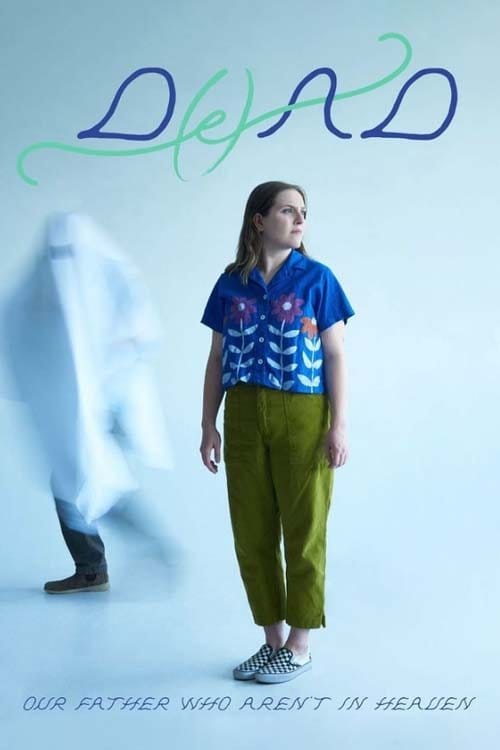
Is there anything you learned about yourself or grief through doing this movie?
Roland: I went through a very introspective arc of emotions after my dad died, which was extremely messy and uncomfortable. But while it was being shot, I really felt like I'd resolved these feelings, because I was watching an actor pretend to be my dad dying on a hospital set, and I would be like Man, this is weird, but then I’d go home and be fine after that. I really do think that experiencing it and then writing it was therapy. As well as a lot of actual therapy.
Bierko: I think after you die, there's a certain amount of stuff that you just begin to accept regardless. I did feel that my character thought the clock was ticking, and I didn't know how many at-bats I had left. There’s that finality, when something or somebody is gone and something has been left unsaid. The greatest thing you get from a movie is I have never told this person I love them, or I think about them more than they think I think about them.
There was something in the playing with Izzy, because of my own experience with who I was playing, where in a weird way, I was trying to connect with that aspect of myself, and Izzy fulfilled that. It was almost working out pain for each other on each other's behalf. It was a very, very special moment. That's the gift of being in a business like this, it's beyond words. There was a lot of this that felt very spiritual, which is taking nothing away from the fact that it is a light, very satisfying comedy that's affirming, but I think it will stay with people the way great comedies do.
Do you believe in ghosts?
Roland: I, unfortunately, really do not. People get really upset with me. I don’t believe in anything. I’m a hard and fast cynic atheist, and the year after my dad died, I found myself getting really upset with spiritual people, because I was so desperate to feel a connection, and everything felt so unresolved. I felt so guilty and so angry, and I was just like Why the fuck do you think you get to have these experiences and I don’t, because that is sort of what it feels like. It’s like Oh, well I’ve had a spiritual experience because I’m more tapped in than you are, and I’m like Fuck yourself forever.
Which taps into your character in the movie, of course.
Yeah. I always need to include a magical element to anything I write or do, because that’s what movies are to me. Movies are opportunities to incorporate magic and all of those imaginative aspects. Because in real life, they’re not there.

Izzy Roland recommends: Mary Poppins (and Survivor: Australia V the World)
I almost can’t really talk about this movie without crying. I don’t think I had seen it in its entirety until this literal year, but I have a toddler and she loves it, which makes me feel like I’m doing something good, because her heart is good.
Survivor: Australia V The World is really good. I don’t have enough time to watch it, but I’m halfway through episode two, and episode one was really good. I don’t know how people can watch it. I guess you need to have a really good VPN or something, because Siobhan Thompson sent me downloaded links of episodes. So I don’t know how to do it, but the first episode was great. If you have a hookup, you have a hookup.
Claudia Lonow recommends: The Twelve Chairs
If you’ve never seen this movie, it’s one of the funniest comedic performances. There are moments in this movie that are ways that I get through life. Whenever I feel I’m not getting my way, I think to myself, I am channeling Dom DeLuise as Father Fyodor in The Twelve Chairs. And the theme song is “Hope for the Best, Expect for the Worst.” It’s Mel Brooks’ second film, and I highly recommend it. It’s more like The Producers, in that it’s a real story and not a parody of something. Even though I love Young Frankenstein and Blazing Saddles, this one is based on a real story, so it has more emotional reality.
Craig Bierko recommends: The Exorcist
I got obsessed with The Exorcist, so much so that it became a comfort movie. I became obsessed with William Friedkin, I was such a geek. I was literally listening to interviews with him on the Laser Disc without watching it. He said it's actually a movie that reinforced his own faith. He wanted to get every element right, and it's about everybody else in the house. That's why he wanted to choose the right girl that people could project on. But this is really about every other person in the house. It's not about the devil, it's about the substance of faith in that last moment. And while D(e)ad is not the same tonally as The Exorcist, it does use other worldly forces to show you something very simple, if you choose to look at it that way.
D(e)ad is playing in limited theaters. Mary Poppins is streaming on Disney Plus. You do indeed need a VPN to watch Survivor: Australia V the World in the US, but it airs on Network 10 in Australia. You can find The Twelve Chairs on YouTube. The Exorcist is available for digital rental or purchase from VOD vendors.

